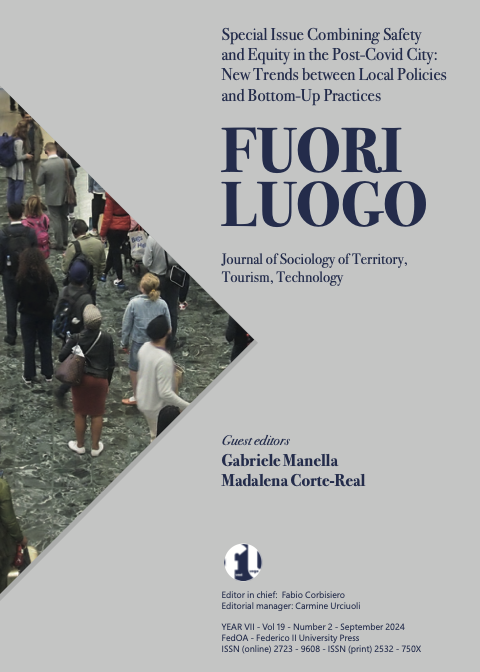Endless Displacement. Migration Governance, Containment Strategies and Segregation in Athens and Turin
Abstract
At the intersection of Segregation, Urban and Refugees Studies, the paper suggests the appearance of new patterns of residential segregation following the turn in European migration governance. I therefore propose a connection between the “urban diaspora” described by Arbaci (2018) and the emergence of “displaceability” as the “silent foundation of contemporary urban citizenship” described by Yiftachel (2018). The first part of the article analyses the evolution of reception policies, analysing the development of Italian “widespread reception” and the parallel ongoing process of “campization” in Greece, namely the process through which, since the "Refugee Crisis", the differences between the reception, housing and detention of migrants have become more and more nuanced (Kourachanis 2018; Kreichauf 2018). The second, departing from an ethnographic perspective, focuses on the displacement policies enacted against asylum seekers and refugees in two southern European cities, namely in the case of the “Ex-Moi” in Turin, a squat in the periphery of Turin inhabited by more than 1000 refugees, and the case of Eleonas refugee camp in Athens, highlighting how the mobilisation of xenophobic and criminalising rhetoric against the migrant population can be instrumental in legitimising new regeneration processes.
Downloads
Copyright (c) 2024 Erasmo Sossich

This work is licensed under a Creative Commons Attribution 4.0 International License.




